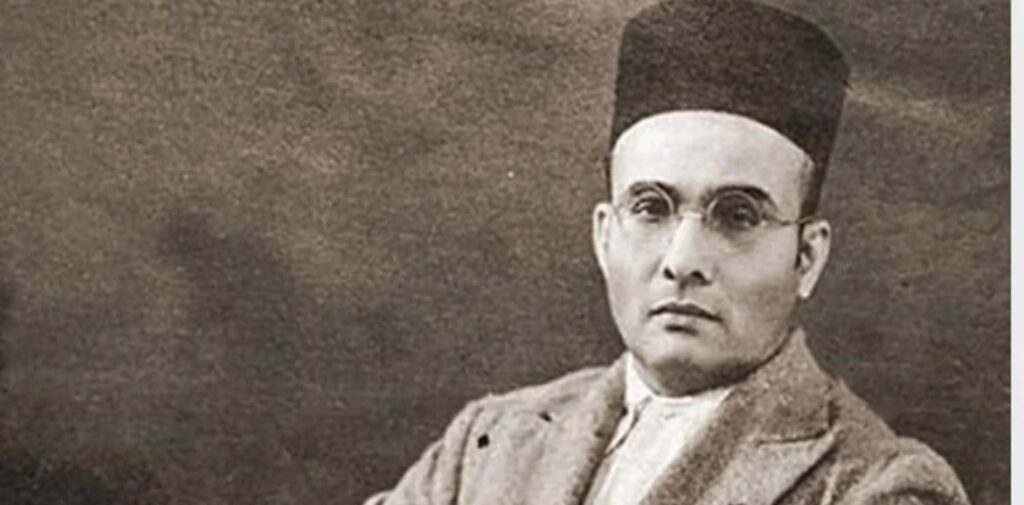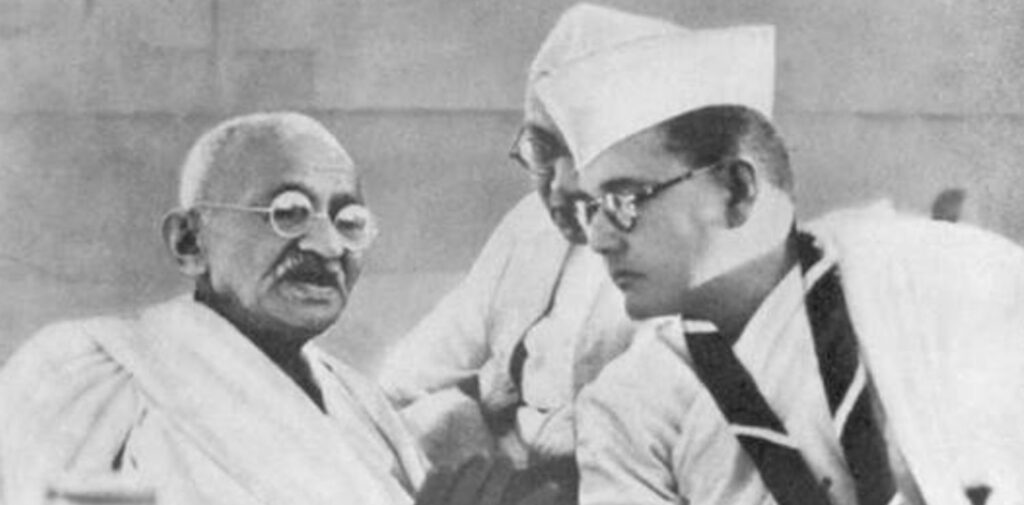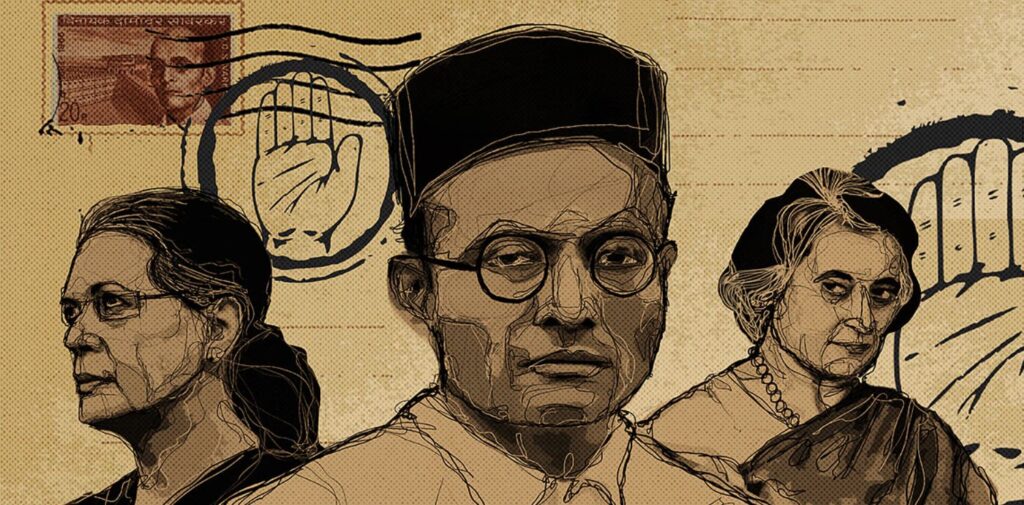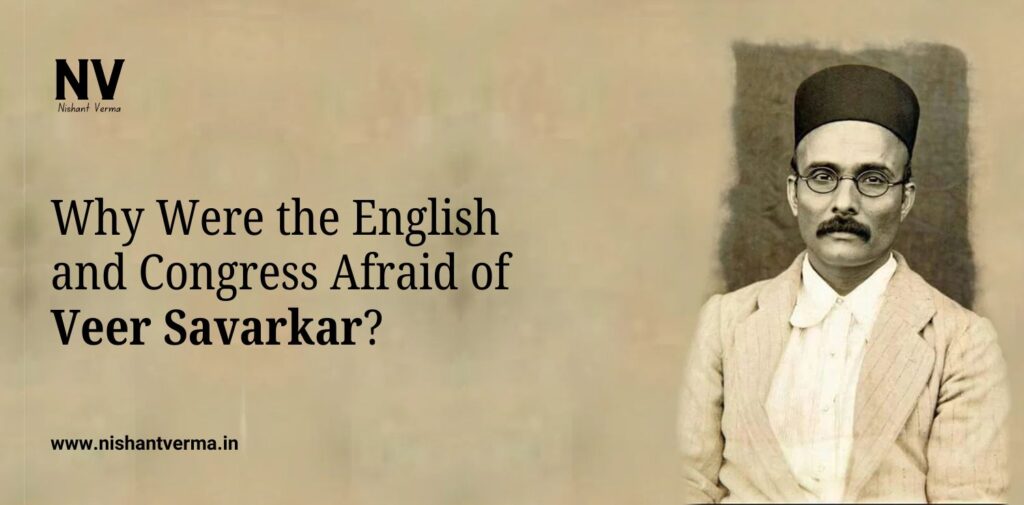Veer Savarkar’s Bold Ideology and Revolutionary Spirit
Veer Savarkar was a brave revolutionary who had a strong and fearless vision for India’s freedom. His ideas and actions were so powerful that they worried both the British rulers and the Congress party. Savarkar was known for his sharp mind, deep love for the country, and strong opposition to British rule. He didn’t just fight against the British but also spoke out against the Congress party’s policies, which he felt were too soft and aimed at appeasing different communities.
He believed in complete independence for India and was not ready to compromise on this dream. Unlike many leaders of his time, Savarkar wanted India to be truly free, without making any concessions to the British. His bold stance and revolutionary spirit made him a significant figure in India’s freedom struggle, and his thoughts continue to influence many even today. Savarkar’s legacy is one of courage, intelligence, and a fierce commitment to an undivided and strong India.

Early Revolutionary Activities
Vinayak Damodar Savarkar was more than just a patriot; he was a revolutionary who fought fiercely for India’s freedom. He was actively involved in the freedom movement and became well-known for his role in the 1909 Nashik Conspiracy Case. Because of this, the British sentenced him to double life imprisonment and sent him to the dreaded Cellular Jail in the Andaman Islands. There, he faced extremely harsh conditions and brutal treatment. The British were so afraid of his influence and ideas that they kept him isolated to stop his revolutionary thoughts from spreading among other freedom fighters.
Despite the suffering, Savarkar remained strong and determined. He used his time in jail to educate himself further, writing important works like The First War of Indian Independence. He secretly sent out messages of hope and resistance, inspiring others to continue the fight. Even in exile, he was viewed as a threat to the British, showcasing the power of his ideas and his unwavering commitment to India’s freedom. His courage and resilience became a symbol for many aspiring revolutionaries in the years that followed.
Intellectual Influence on Youth
He had a significant impact on the youth of his time through his revolutionary writings. His famous book, The First War of Indian Independence, gave a new perspective on the 1857 revolt, describing it as India’s first united fight for freedom instead of just a mere mutiny. This work challenged the British version of history and inspired many young revolutionaries to stand up against the colonial rule. The British government considered his ideas as extremely rebellious and a threat to their authority. His influence wasn’t limited to just one region or group. Organizations like the Ghadar Party and Hindustan Socialist Republican Association drew inspiration from his call for direct action against the British regime.
In addition to motivating these revolutionary groups, Savarkar’s ideas also ignited a sense of patriotism and courage in young Indians, pushing them to take bold steps in the struggle for independence. His emphasis on armed resistance and his vision of a united, independent India encouraged many young activists to actively participate in anti-British activities. Even from prison, his writings and thoughts continued to influence people across the country. Savarkar’s legacy as a fierce advocate for freedom helped shape the mindset of an entire generation, leaving an indelible mark on India’s fight for independence.
Why Did the Congress Oppose Him?
Congress’s fear of Savarkar can be traced back to his ideology of Hindutva, which focused on uniting Hindus under a common cultural identity. This directly opposed Congress’s secular approach, which often seemed to prioritize minority appeasement. Savarkar’s emphasis on Hindu unity and his blunt criticism of the Congress party’s “soft” policies created a rift.
The Congress, under leaders like Nehru and Gandhi, opposed Savarkar’s methods and ideology. They labeled him as a divisive figure who did not align with their vision for India. The Congress’s fear stemmed from the fact that Savarkar’s ideas resonated with many Indians who were tired of Congress’s compromises and inaction.

A Strategic Nationalist, Not a British Stooge
Some people try to label Savarkar as a British supporter because he wrote petitions for his release from the Andaman Jail. But these petitions were not about giving up; they were a smart strategy to get out and continue his struggle for India’s freedom. Savarkar believed that being outside prison would allow him to fight more effectively against the British. After his release, he didn’t become silent or inactive. Instead, he stayed vocal and continued to criticize British rule with strong words and actions. He actively worked to unite Indians against the British, becoming a real problem for the colonial government.
Savarkar’s critics overlook the fact that he was not just a freedom fighter; he was a thinker and a planner. His petitions were a tactical move to get out of the isolated jail environment, where he couldn’t contribute much to the freedom movement. Once he was free, he used his writings, speeches, and organizational skills to inspire people to stand against British rule. His activities showed that he was always committed to India’s independence, using both direct and indirect methods to weaken British control. Instead of being a collaborator, Savarkar was a strategist who knew how to turn even a difficult situation in his favor.
Savarkar’s Legacy and the Congress’s Continued Fear
Savarkar’s legacy still haunts the Congress, as they continue to view him as a polarizing figure whose ideas could undermine their political base. Even after independence, Congress worked to diminish his contributions by omitting his name from historical texts and diminishing his role in the freedom struggle.
Despite the Congress’s efforts, Savarkar’s contributions to Indian history and his unwavering courage have found renewed appreciation. His emphasis on self-reliance, national pride, and uncompromising opposition to oppression are qualities that still inspire millions.

Conclusion
Veer Savarkar was a revolutionary who stood against the British and challenged Congress’s politics. His legacy is one of fierce patriotism and intellectual strength, a legacy that frightened both the British and the Congress. While the British feared him for his revolutionary zeal, the Congress opposed him because his ideas didn’t align with their vision for post-independence India. Despite opposition, Savarkar’s vision and contributions continue to shine brightly in India’s history.




